Fishing with Bait Shrimp
Watch the video: Non-Gulf Shrimp Bait Can Harm Native Species.
Only use shrimp native to the Gulf of Mexico
Shrimp is a popular choice to use for bait when fishing, but not all shrimp species can be used as bait. Never use imported frozen shrimp in Texas waters. Imported shrimp includes all shrimp species not native to the Gulf of Mexico, including shrimp from other countries like Venezuela, or Thailand or from other non-Gulf states like California. Shrimp from a non-Gulf state or different country is considered imported and can not be used as bait.
While not harmful to humans when eaten, imported shrimp may carry several known viruses or diseases that can be transmitted to native Gulf shrimp species (and other shellfish such as crabs and crawfish). This could cause considerable harm to Texas ecosystems in both saltwater and freshwater environments. Many of these viruses can survive the freezing process and therefore do not die when the imported shrimp is packaged for shipment to food stores.
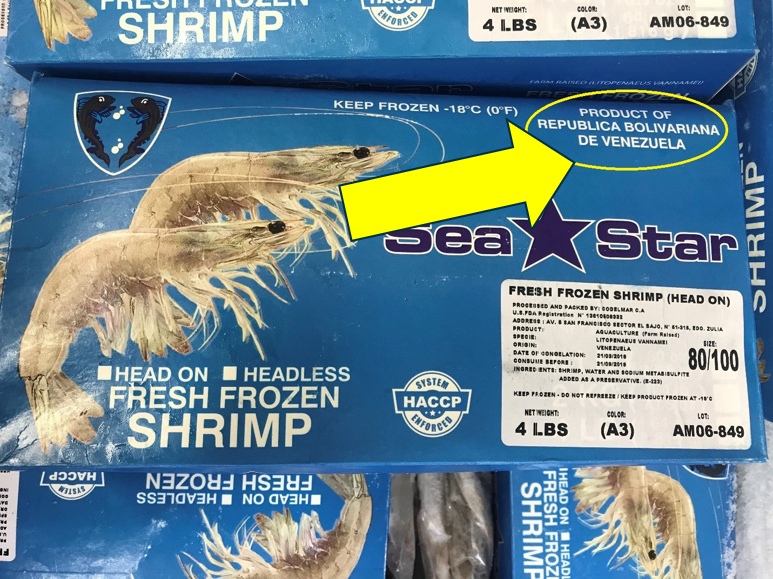
Check the label -- Packaged imported shrimp from another country (or state) should not be used as bait.
The most common imported shrimp species is the Pacific White Shrimp or Whiteleg Shrimp (Litopenaeus vannamei), which is raised in ponds for food and found in many local food stores. Other commonly imported species include:
- Pacific blue shrimp (Litopenaeus stylirostris)
- Tiger shrimp (Penaeus monodon)
- Yellowleg shrimp (Farfantepenaeus californiensis)
Imported shrimp can spread deadly White-spot syndrome virus
The disease most likely to be transmitted from the introduction of imported or any non-Gulf of Mexico shrimp into Texas waters is the White Spot Syndrome Virus. As an invasive species concern, there is the potential to transmit the virus into native shrimp populations. The virus has not been introduced into Texas ecosystems yet, but the potential is there when imported shrimp (possibly infected with the virus) are used as bait.
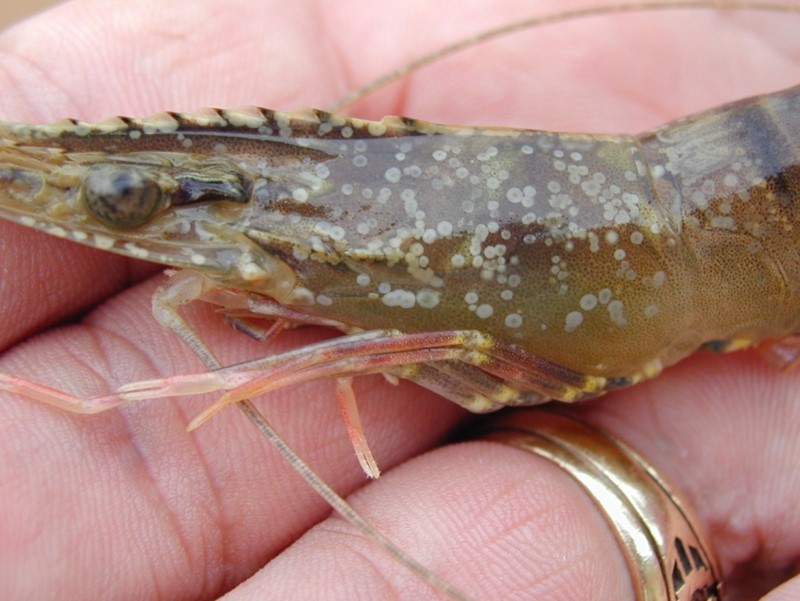
A shrimp with white spot syndrome (Photo credit: Dr. Lightner)
When introduced into a new aquatic environment, the virus only infects crustaceans like shrimp, crabs and crawfish. Once the virus infects a native crustacean population, rapid mortality occurs within days. This would have devastating consequences for the entire ecosystem. Shrimp populations native to Texas are an important part of the marine food web and diet of species like red fish and spotted seatrout. Because of the interconnectedness of marine populations, when one population suffers, so do others.
Texas law forbids the use of non-native (imported) shrimp
Another reason to never use imported shrimp as bait is because it is against the law. Introducing imported shrimp to the aquatic environment is illegal under Texas law, regardless of whether it is alive or dead, whole or in pieces. If you are unsure of the origin of the shrimp you plan to use as bait, do not use it.
Federal law requires that imported shrimp be labeled with the country of origin and method of production (wild or farmed). Check the label when purchasing shrimp and look for a label verifying it’s Gulf of Mexico shrimp.
Labels can sometimes be confusing, so if you are unsure, please ask your provider. When purchasing shrimp at a retail food store or bait shop, ask at the counter to make sure that the shrimp being sold as bait is shrimp native to the Gulf of Mexico.
Native Texas shrimp - The only approved bait shrimp
The three main harvested shrimp species native to the Gulf of Mexico are pictured below. Many local bait shops offer Mantis Shrimp (Squilla empusa), commonly referred to as Sea Lice, which may also be used as bait.
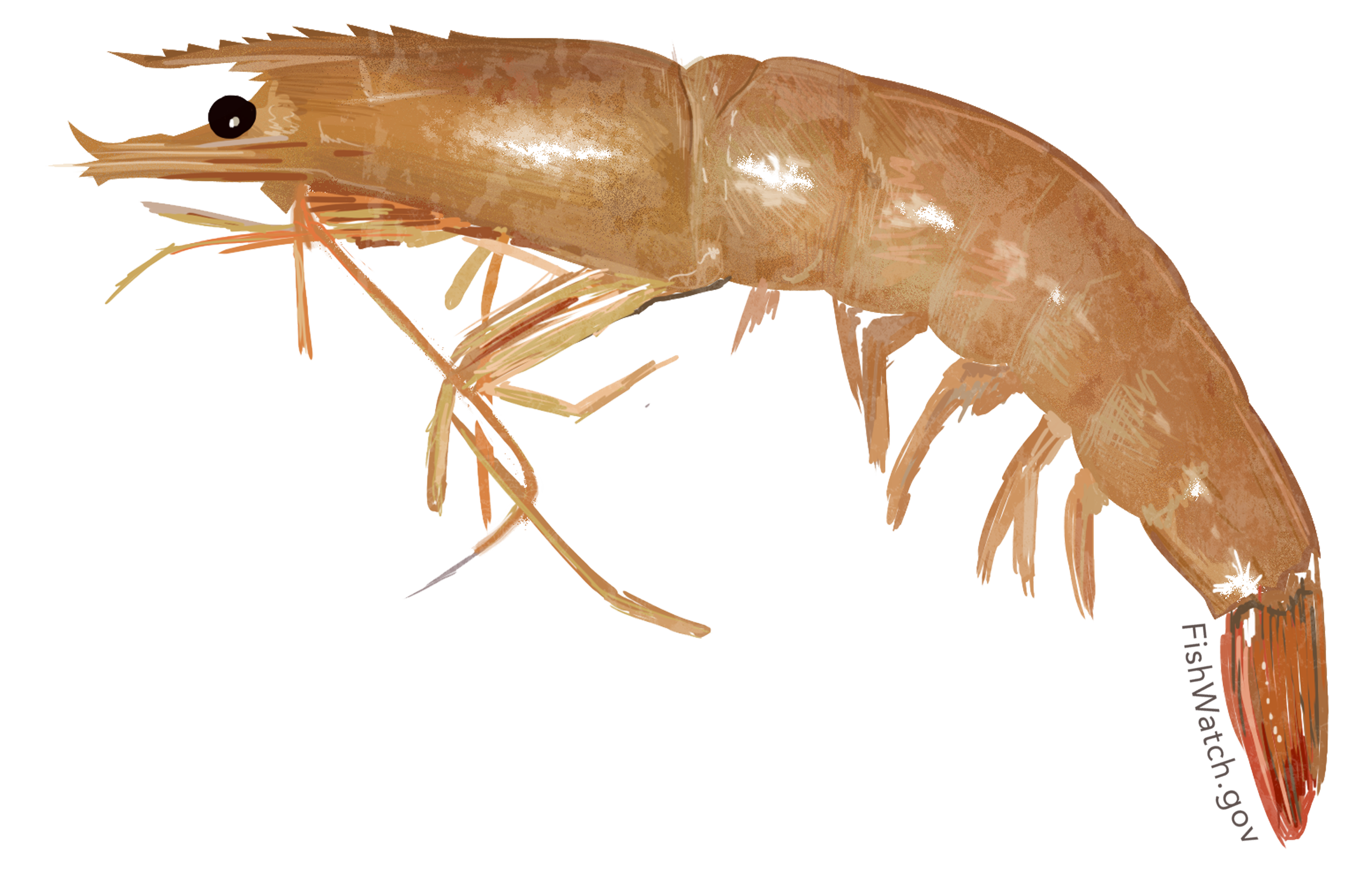 Brown Shrimp (Farfantepenaeus aztecus) |
Brown Shrimp (Farfantepenaeus aztecus) | 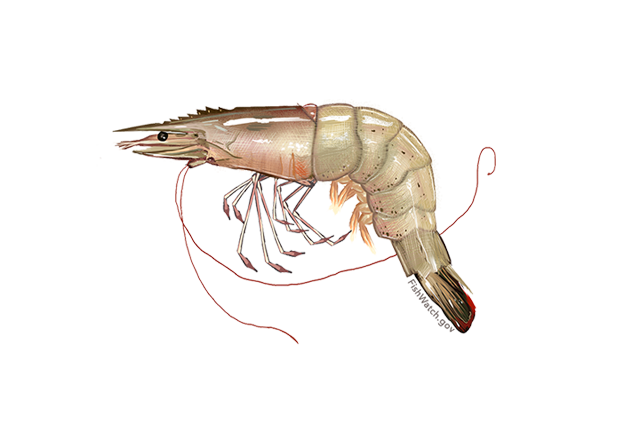 Northern White Shrimp (Litopenaeus setiferus) |
Northern White Shrimp (Litopenaeus setiferus) | 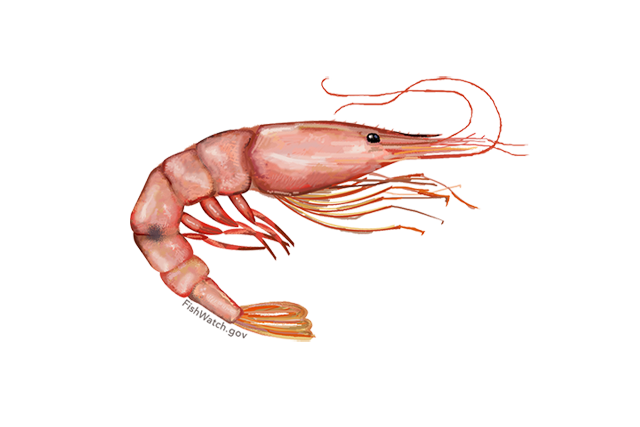 Pink Shrimp(Farfantepenaeus duorarum)|
Pink Shrimp(Farfantepenaeus duorarum)| 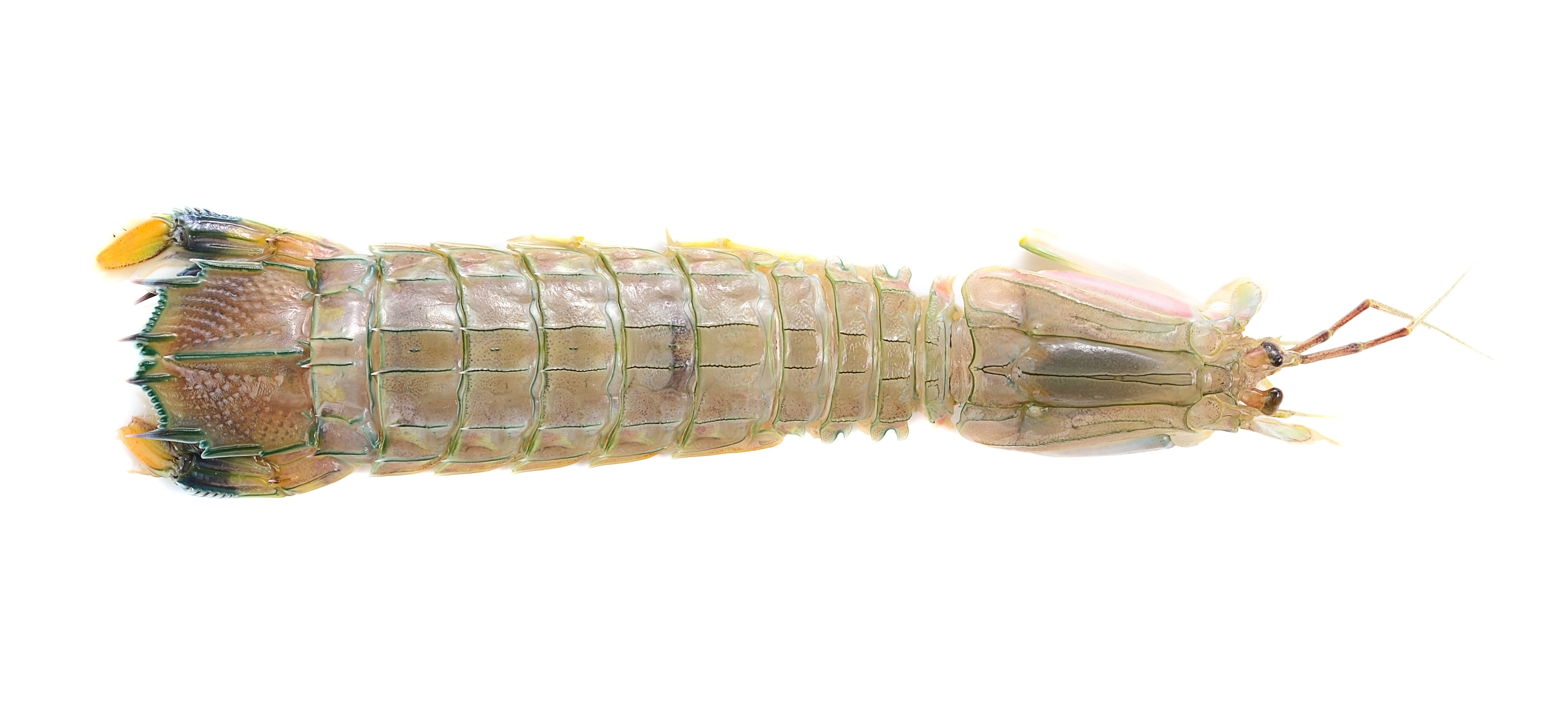 Mantis Shrimp or Sea Lice (Squilla empusa) |
Mantis Shrimp or Sea Lice (Squilla empusa) |
Bait Shrimp Rack Card (English)
Bait Shrimp Rack Card (Spanish)
Bait Shrimp Rack Card (Vietnamese)